#fallen human
Text
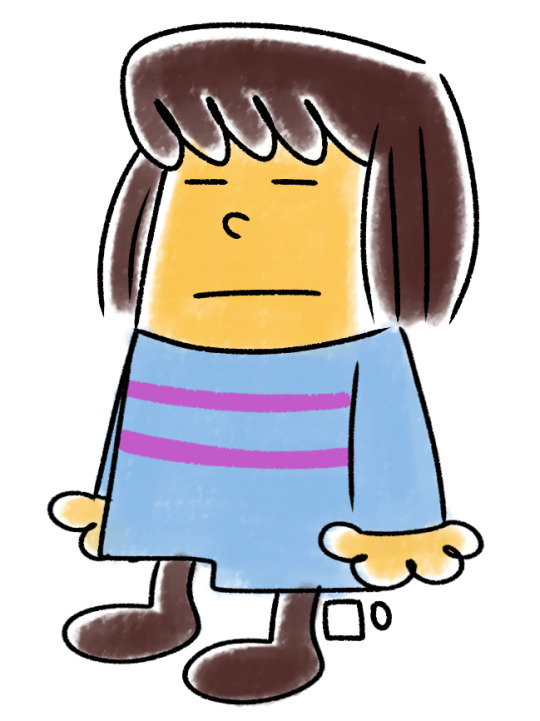
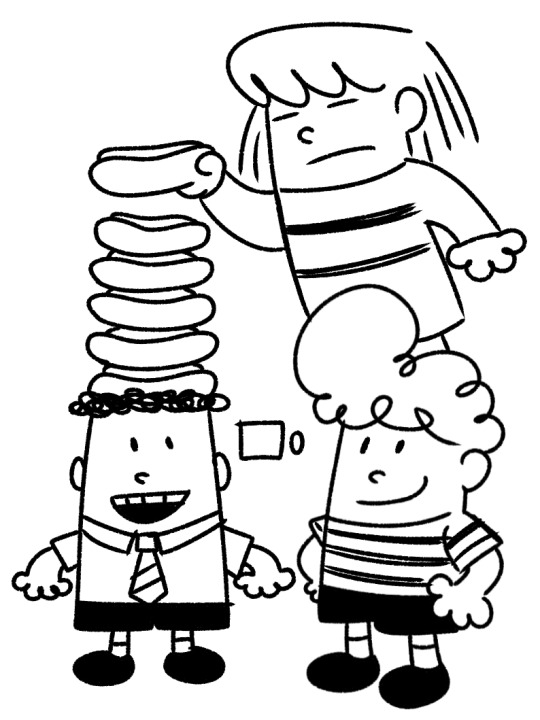
i fell from the light
talk or should i fight
848 notes
·
View notes
Text
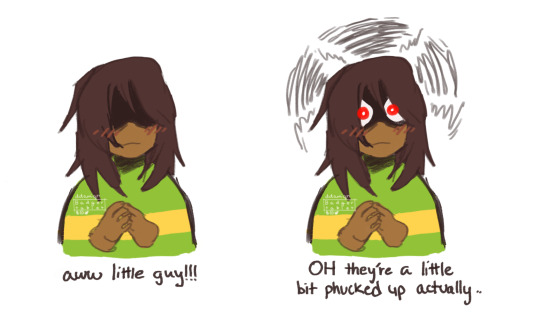
behold. kris deltarune
#kris dreemurr#kris deltarune#deltarune#deltarune chapter one#fallen human#badger_arts#dipped my toe back into drawing kfc gang blacked out and woke up with portraits for all of them and MUCH much more#ut/dr be like: sucks me into their void again#that being said i have not played deltarune chapter 2 yet. i also somehow haven’t seen spoilers other than no pap too#anyway based on my current brainrot i think i’ll be more active on here now. Perhaps#undertale#the alt has descriptions btw
2K notes
·
View notes
Photo

A thing.
A thing unrelated to the current thing.
But for a different thing after the current thing.
1K notes
·
View notes
Text
The first human

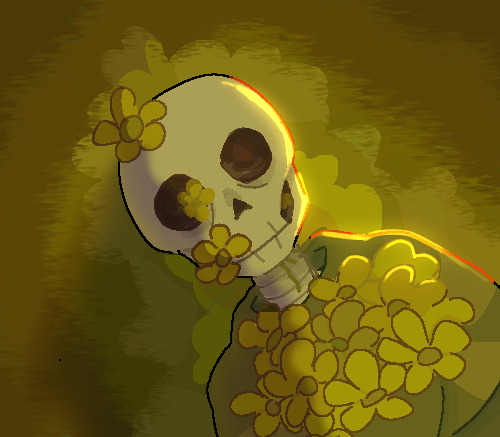
#everytime i draw anything i learn something else about lighting#what the fuck is an add layer and why am i only just now finding out about it#art#fan art#fanart#undertale#chara#fallen human#buttercups
47 notes
·
View notes
Text
Narrachara Theory is False: An Attempted Debunk of As Much Evidence As I Could
~CONTENTS~
Disclaimers
Genocide Route Narration Issues | My Narrator/Chara Interpretation
Systemic Issues with Narrachara
Responding to Weak Evidence for Narrachara: References to Chara | Similarities to Chara | In-Story Flashbacks
Responding to Strong Evidence for Narrachara: Snowdrake's Mom | Game Over Flashbacks | Flowey in True Pacifist Ending
Chara's Speech in the Genocide Ending
Conclusion
1) DISCLAIMERS
This post is only an attempt at debunking the popular "Narrachara Theory". It is not meant to make any statements on whether Chara is good or evil, or morally responsible for any aspects of the Genocide Route.
It's my intention to tackle this issue in a respectful, inoffensive, and kind way towards any Narrachara supporters. I believe you are wrong, and will say so, but want to be nice about it. Feel free to engage in the comments, but please also be considerate of my feelings. I have had a number of discussions about this that were not great, so I don't want to repeat those mistakes or to argue my stance poorly.
2) GENOCIDE ROUTE NARRATION ISSUES | MY NARRATOR/CHARA INTERPRETATION
It is common for Narrachara supporters to point to the Genocide Route as evidence of Chara being the narrator "overall", particularly instances where the narrator speaks in the first person and tells you they are Chara/whatever you named them. The issue with this is that there is an obvious difference between the way the narrator sometimes speaks in the Genocide Route (in the first person and bluntly), and how they speak at all other times (in the second person and with some whimsy/dry humour). This contrast is intentional, to create a feeling of shock, suspense, or dread in the Genocide Route only. While people have tried to interpret this as evidence for Chara being the only narrator, I have my own interpretation:
I believe that Chara is in Frisk's soul as soon as Frisk falls into the Underground, but is asleep from the start of the game. In normal routes, Chara remains asleep and the narrator is a non-person/generic entity. In the Genocide Route, emptying the Ruins wakes up Chara. The narrator, after that point, is still the generic narrator, but Chara can "speak over" the narrator at points of their choosing. Meaning, the Genocide Route has two narrators: the generic narrator, and Chara.
Looking at the Genocide Route's narrator alone, my interpretation is possible, meaning Chara's lines in the Genocide narration cannot automatically support Narrachara. I will expand on why I think my interpretation is likely.
3) SYSTEMIC ISSUES WITH NARRACHARA
Narrachara Theory holds that Chara is the narrator for all of Undertale, in every route. Since Chara is an actual character in the game, this would mean that the narrator is:
a single, defined character,
with a concrete personality,
who has coherent emotions and psychological states,
who sees the world through a particular point of view (through "their own eyes"),
who knows what they know, and doesn't know what they don't know, and
who would undergo consistent character development in response to events they experience.
I believe the narrator is a generic non-person. This means, by contrast, the narrator would be:
not a defined character, but a "language-based tool" for the game to use to describe itself,
who has a flexible or arbitrary personality that is tailored to every individual context,
who has no emotions and psyche, and can act however it wants for greatest effect,
who can see everything in the game and portray it selectively,
who knows everything, and can feign ignorance if it suits it, and
will never undergo character development regardless of events in the game.
It's obviously a lot easier to be a generic narrator than a defined narrator, so in order to argue the narrator is defined, the narrator has to behave in a defined, non-random way. If the narrator does not behave like a consistent person, then they either aren't a consistent person or the author is a bad writer. As such, there are three major issues with Narrachara Theory:
i) The narrator's knowledge and POV is random.
Sometimes the narrator doesn't know things and has to learn them by player investigation (with the water sausages in Home); sometimes they don't know things and learn them through automatic investigation (Alphys's cameras, and the snow dodecahedron in Snowdin Forest); and sometimes they know information automatically with no investigation (that Alphys's box is a bed). Additionally, the narrator is able to literally read minds (it knows that Papyrus is thinking about your date, that Undyne thinks about her friends, that Woshua feels disgust at its wounds, etc.) without investigation or inference.
It isn't impossible that Chara, as the narrator, has special knowledge or powers. But if the narrator were supposed to be a single character, the most basic way to communicate this is to treat them like a person with a consistent knowledge set and point of view. Since this isn't the case, Chara being the narrator would require us to treat Chara's traits as very loose and ill-defined, which is not great for people who want to take Chara seriously as a character. It would also require us to assume Toby simply did not care about representing Chara with much effort to consistency of POV, which isn't a good view of Toby as a writer. A generic narrator lacks this problem.
ii) The narrator is actually pretty consistent between the normal and Genocide Routes, which implies they don't undergo character development.
A major idea behind Narrachara is the idea that Chara is a neutral or misguided kid at the start of the game, and you "corrupt" them through your killing to make them violent. As such, the instances of blunt, aggressive, or violent language from the narrator in Genocide would constitute negative character development—Chara becoming more evil.
However, something I didn't notice until I recently replayed Undertale like two weeks ago is, the narration between normal and Genocide routes is actually very consistent. A lot of it is exactly the same between routes, including a lot of the normal humour. One that stuck out to me was, the narration for Alphys's bed box is exactly the same, which strikes me as a particularly humorous or ironic line. The narration also describes you as "stopping to smell the flowers" when you interact with the cactus in Hotland, which is a deliberately lighthearted or silly line in the context.
If the narrator were intended to be a single character who becomes "corrupted" over the course of the route, I would expect EVERY line in the Genocide Route to be altered to be humorless, blunt, or sinister—bonus points if early lines seemed uncertain or noncommittal. This is not the case, however; only certain lines are altered to be that way, and it's done that way to create a feeling of dread through contrast with normal lines. As well, Chara is immediately committed to the Genocide Route as soon as they exhibit changes, with no sense of escalation.
If Narrachara were true, we would have to either accept that Chara does not fundamentally change between normal and Genocide routes and just chooses to act sinister on purpose for no reason (which is bad for people who want to argue Chara gets corrupted); or, that Chara's personality is just fundamentally random and inconsistent, which is bad for people who want to take them seriously or view Toby as a good writer.
The more likely option in this case is my "generic-narrator-that-Chara-talks-over" interpretation, which allows the normal narrator to remain unchanged between routes. It also makes the Genocide Route's tension more "earned", because it shows that there is a second, more malevolent force that is exerting control over a more approachable first narrator.
iii) The game as a whole treats Chara's possession as uniquely significant in the Genocide Route.
In the Genocide Route, Chara's possessing Frisk and being the narrator sometimes is obvious. They speak in first person, announce themselves to be Chara, claim ownership over things in New Home, express personal interests, and refuse to look at things they don't care about. This route is also the only route wherein anybody (Flowey and Chara) discusses the particulars of how Chara is able to possess Frisk, and is the only route wherein Chara physically manifests as their own individual. Chara is also able to overpower the player in this route, if we choose to not erase the world.
In normal routes, the narrator never breaks second person, and Chara doesn't get anywhere close to this level of focus or control. If Chara were meant to be the narrator for every route, I wouldn't anticipate the attention on Chara to be this skewed to only the Genocide Route. This is also bad for Narrachara believers, typically, because it implies Chara has a special level of "development" in Genocide that they don't get in True Pacifist. This makes Chara's development uneven and inconsistent between the routes, implying they may be naturally inclined to killing. Alternatively, it may imply that killing is a better route to power and independence than mercy, which is...a VERY strange moral for Undertale to imply, to say the least.
Overall, these are massive problems with Narrachara Theory. On their own, I feel they defeat the theory, and random incidental evidence cannot just be piled on to fix these problems. If Narrachara is supposed to be true, it's pretty poorly written. But I will address common evidence I see for Narrachara below.
4) RESPONDING TO WEAK EVIDENCE FOR NARRACHARA
"Weak" evidence is evidence that can either be easily clarified, or which doesn't on its own suggest Chara is the narrator.
Narrator References to Chara
The narrator makes several references to Chara throughout the story, including making a reference at Chara's bed, referencing two kids playing in a muddy flower garden or eating pie when joking with Woshua, and others. People argue that the narrator making references to Chara implies the narrator is Chara. If the above big issues didn't exist, I would agree, but they do, so …
A generic narrator is plenty able to make references to characters, including Chara. Doing this creates a sense of unity for the player, acts as references to the lore the player can appreciate, and ultimately makes the narrative experience richer and more interesting. Because a generic narrator can do whatever it wants to make the player's experience the best it can be, a generic narrator has tons of reason to make these references. They are cool. Additionally, since Frisk fell into a flower pile at the start of the game, and was gifted a pie, many of these examples are relevant for Frisk. Chara does not to be involved at all for these references to be made.
Ultimately, this type of evidence is weak. They'd be interesting details if the narrator seemed to be Chara, but as-is they seem to be funny nods to the lore and little else.
Narrator Similarities to Chara
Some have argued the narrator has similarities to Chara's personality or interests. In particular, the narrator (or Frisk) gives water sausages and cacti particular notice, and Chara is argued to be interested in botany due to their connection with golden flowers.
Aside from the fact that Chara is shown to only be interested in golden flowers, and not plants in general, this also has a problem of consistency. The narrator displays no interest in other plants, such as refusing to refer to Mettaton's ficuses as ficuses even after you learn what they are from an NPC. It also doesn't remark how novel it is that Alphys is turning some kind of plant into ice cream. If Chara were meant to concretely be into botany, I would expect more effort on one of Chara's only supposed character interests.
The narrator also displays interest in things like snow poffs and snowballs, literal garbage, and dogs and dog food, none of which Chara is associated with. It's much more likely that the narrator focuses on whatever it needs to in order to make jokes in-context, and any similarities you can draw to Chara are coincidences. Ultimately nothing that a generic narrator wouldn't do. Chara doesn't need to be involved for these references to be made.
In-Story Flashbacks
Specifically, the flashbacks to Asriel when Frisk falls into the dump, during the Asriel fight in True Pacifist, and the optional one in the bed in Home. These are (understandably) argued to be Chara's memories, and used as evidence that Chara and Frisk are always connected. This is a misunderstanding, though.
For the dump flashback, this occurs when Frisk falls onto a bed of golden flowers. Based on True Lab entries 8, 10, and 21, we can surmise that the flowers grew here after Alphys dumped the flowers and seeds from her failed experiments. Since the flashback occurred in a situation connected to Flowey, and therefore Asriel, we can surmise this flashback is of Asriel, not Chara. You could argue that this would be a vaguely-defined connection to Flowey, and it is, but it's not like this game doesn't have other instances where magic and game mechanics are treated very loosely.
Similarly, the flashback in the True Pacifist finale occurs after Frisk reaches out to Asriel's soul to "save" him, while Asriel is God and trying to erase Frisk's memories. We can even more safely read the memories as from Asriel, not Chara. I have heard interpretations that Frisk is trying to "save" Chara here, or that Chara is trying to help Frisk save Asriel, but no matter how much I think about this scene I can find literally nothing whatsoever to indicate such a thing. It seems like a baseless presumption from nothing and totally unnecessary.
Finally, you can also experience an optional flashback in Home when you sleep in the bed Toriel left for you. Given this is the only bed in the room, and it's also on the same side of the room as Asriel's bed in New Home, we can surmise this was Asriel's bed before Chara fell into the Underground and they moved to New Home. Since we know Flowey stayed with Toriel for a time before the game's events, we can even predict that he slept in his old bed and left traces of himself there. This is potentially the weakest response of the three in this section, but 1) I don't think it's insignificant that every flashback except for the Game Over ones (which I talk about below) has something to do with Asriel and not Chara, and 2) this single missable scene doesn't do very much to ground Narrachara.
5) RESPONDING TO STRONG EVIDENCE FOR NARRACHARA
"Strong" evidence is either evidence that requires more effort to clarify, or which has significant ambiguity that doesn't allow for easy in-universe analysis by either Narrachara supporters or myself.
Snowdrake's Mom
You can choose to Laugh or Heckle at Snowdrake's mom in the True Lab, which is a reference to being able to do both of these things at Snowdrake in Snowdin Forest. If you do either of these things, the narrator will describe Frisk as laughing at her misery or mocking how pathetic she is, before saying "… what? You didn't say/do that?" Narrachara supporters take this instance as evidence that the narrator is personally reacting to Snowdrake's mom, in a way distinct from Frisk, which implies the narrator is their own character with their own feelings.
However, we should pay more close attention to how the narrator actually behaves and what Frisk can do. In Undertale, Frisk doesn't ever exhibit the ability to disobey the narrator—if we command Frisk to do something, Frisk does what they're told. With Deltarune this is even more apparent, since it makes a huge character deal out of Kris needing to abuse loopholes to work around our commands, or rip out their soul in dramatic fashion to make their own choices.
As well, the narrator is still speaking in second person, which (if we assume Frisk disobeys the narrator) would imply they're trying to get Frisk to react in a particular way rather than describing their own feelings. In the Genocide Route, Chara either speaks in the first person, or completely avoids using pronouns at all, because they speak about themselves rather than Frisk. So, they are worded very differently.
As such, since Frisk cannot normally disobey the narrator, it seems to me that if the narrator truly described Frisk as mocking or laughing at Snowdrake's mom, they just would. So if the narration says "… what? You didn't do/say that?", this would indicate to me that the narrator made the intentional decision to backpedal on their first command.
Why would they do this? Well, if the narrator is a generic narrator, it has the ability to do literally whatever it wants to create whatever effect is intended by the game in the circumstance. It doesn't have to obey any specific kind of dialogue or character actions, because it doesn't have feelings or a personality. By writing the "ACT" description in this way, it creates the feeling of chaos, uncertainty, franticness, and distress. This would imply that Frisk doesn't know how to handle the situation, and this is how the narrator is choosing to portray that. This also falls in line with the chaotic, random style of narration to be found across all of the amalgamate battles, so it gives the True Lab a consistent tone.
If Narrachara Theory were true, we would need to accept that Chara made the conscious decision to give Frisk contradictory commands for some reason. Not only does this completely run against "their" style for the rest of True Pacifist, it also is the exact opposite of their shown personality in the Genocide Route, which is blunt and minimalistic. The Undertale alarm clock app also implies Chara, before they died, filled their water glass to the brim because it was "the most efficient way" to do it, further implying they are no-nonsense and direct. It also does not seem to me that, given Chara's experiences, they would have a unique emotional or psychological response to Snowdrake's mom that they have to nothing else in the game.
Again, this scene doesn't "fit in" with the vision of the narrator as a consistent and predictable character, because it is so different than anything else in the game.
Game Over Flashbacks
When you die, the game displays the "Game Over" notice and gives you a flashback of Asgore speaking to a dying Chara.
This is one of the few instances of evidence that isn't very easily discountable and actually does imply at first blush that Chara is somehow involved in all Game Overs. I'll detail the main issue with this, though:
This occurs in the Game Over screen, so at this point the game has broken its fourth wall and is treating itself very clearly as a video game. So, there is room to interpret this scene in a "meta" fashion which isn't held to the same logic as in-universe "soul mechanics" or "possession mechanics". Because the game is "being a video game", this scene could easily be read as the game deciding to show us, the player, information intentionally to deceive us (regarding Frisk's identity), and not because anything particular is happening "in the world". I'll explain this a bit more in the next section.
This might not be satisfying to people, who want to keep away from "meta" discussions. But there are problems with not accepting this "meta" logic. Let's assume this is happening "in the world". How does that work? When we die, Frisk's soul shatters and is destroyed, and then the Game Over sequence happens. If Frisk no longer has a soul, they don't exist, meaning they can't be experiencing the flashback. Chara says they need Frisk's soul to exist, so if Frisk's soul is gone, Chara is also gone, meaning Chara can't be seeing the flashback either. Flowey didn't have a soul, but he had Determination directly injected into his body, which Frisk didn't have, so we can't use Flowey as an analogue here. So who is seeing the flashback? How is it happening? There's no way to explain this literally.
You may then say, "Well Frisk's soul doesn't literally explode, we know human souls persist after death. This is just a video game representation to show the player they lost." And you are probably right. But if we can use "meta" logic for that, we can also use "meta" logic for the scene as I describe.
For firmer in-universe justification, we also know that the golden flower seeds cling to whatever they touch, and Frisk falls into a pile of golden flowers at the very start of the game, so it is arguable that Frisk always has a bit of Flowey’s essence on them at all times. This could establish that all “Game Over” flashbacks originate from Flowey/Asriel the same way as the three more specific flashbacks do that I discussed above.
Overall, it's not an air-tight response, but this scene introduces so much confusion and ambiguity that we can't feasibly take it as hard proof for Narrachara. It breaks the logic of the game world and can't be read according to consistent in-universe rules. It's very "loose".
Flowey in the True Pacifist Ending
After the True Pacifist credits, when you boot the game back up, Flowey appears and talks to "Chara" about how they are a threat to the characters' happiness and asks them to not reset the game, to allow Frisk to live their life. Narrachara supporters take this as hard proof that Chara is present in the True Pacifist Route. But let's examine the issues with that as we did the Game Over screen.
Firstly, this scene is inconsistent with Flowey's understanding of events in the True Pacifist Route. Flowey realizing that Frisk is not Chara was a pretty major character development for him. Additionally, Flowey also had the ability to reset even though he wasn't controlled by a player and connected by narration; so, according to in-universe logic, Flowey should have thought that Frisk had the power to reset, not "Chara", meaning they should be urging Frisk to not reset and live their life. Taking this scene literally would actually be an instance of inconsistent writing.
In fact, I would even go so far as to say interpreting Flowey as talking to Chara invalidates his character development from the True Pacifist ending. It would mean he was essentially wrong to conclude that Frisk is not Chara, since Chara would have been there the whole time, so him talking to Chara through Frisk would have been valid. Flowey letting go of Chara and accepting his flawed perceptions of them is the culmination of his character arc.
So...why is this scene happening?
Where does this scene take place? It occurs in a black void. Other black voids are in the game, such as the battle screen, but remember that this scene occurs after you first boot up the game, before you are brought to the select screen to load your save (which is an in-universe power). So at this point, you aren't "in the world" of Undertale, you are clearly looking at a "meta" space even beyond other "meta" representations like the combat screen, or Flowey's conversations with Chara in the Genocide Route. So, Flowey's actions and words here are not necessarily representative of Flowey "in the game", and aren't bound by the rules of the story.
So, why does this scene happen? It is obvious we are meant to name Chara our own name. Undertale riffs on a lot of RPG tropes, one of which being the player-named self-insert character you're supposed to project onto. Undertale subverts that by revealing your player character is their own character and you were "wrong" to assume they were a representation of you. Naming Chara after yourself also adds a ton of weight and tension to scenes where people refer to the Fallen Human by your name. It also makes your menu screen and stats feel more like they belong to you, which ties into the Genocide Route's message of raising your stats just because you like the feeling—something Chara attributes to the player.
Sure, "Chara" is referred as the "true name" of the Fallen Human, but it is obvious that Chara is short for "character", which is a generic moniker given to a character who isn't meant to have their own name. If Chara were meant to be named Chara, they would be named Chara and we wouldn't have the ability to make it not so. It's an Easter egg.
So, in this scene, Flowey is clearly intended to be talking to the player, to tell us as the player to not reset the game and "ruin" the "lives" of these characters. It is a full-circle completion of the themes of responsibility, and of bonding with the experiences of fictional characters. It also ties into Flowey's character backstory of growing existentially bored with life and treating everybody as just lines of dialogue. He is meant to parallel us, the players of the game, and it's meant to make us feel unique and heavy things about Undertale. The game is simply most impactful and meaningful when viewed through this lens. The game does use the same name that you give Chara, but this strikes me as out of necessity, to keep these themes hidden until the very end, rather than for any literal in-universe meaning.
This also factors into the previous point about the Game Over screen. Naming Chara after ourselves gives us the illusion Asgore is talking to us, which makes us more likely to imprint upon Frisk and feel they aren't their own person. This makes the plot twist in the end of True Pacifist more impactful.
Either way, this scene with Flowey has the same issues of being confusing and ambiguous. It is clearly written in a "loose" fashion that doesn't hold itself to the strict logic of what Flowey should know and believe at this point given his experiences. So it is not very conclusive evidence that Chara is present in this scene, or that Flowey is even talking to Chara instead of literally to us, the player.
And, crucially, two isolated incidents don't strike me as strong enough to outweigh the fact that the narrator simply is not written in a way that suggests they are a concrete character. It would be bad writing to have a poorly written narrator support its entire "concrete character" status with only two events. Particularly when those incidents have their own interpretation issues.
6) CHARA'S SPEECH IN THE GENOCIDE ENDING
With all the above in mind, let's look at the final big thing people look at as evidence for Narrachara Theory. Chara's speech is below, in full, written in normal sentence structure:
"Greetings. I am <Name>. Thank you. Your power awakened me from death. My "human soul" … my "determination"—they were not mine, but YOURS. At first, I was so confused—our plan had failed, hadn't it? Why was I brought back to life? … you. With your guidance, I realized the purpose of my reincarnation: power. Together, we eradicated the enemy and became strong. HP; ATK; DEF; GOLD; EXP; LV. Every time a number increases—that feeling—that's me: "<Name>". Now—now, we have reached the absolute. There is nothing left for us here. Let us erase this world, and move on to the next."
Narrachara believers draw the conclusion from this speech that "our" Determination is what brings Chara back to life, and since "we" possess Determination from the very start of the game in all routes, Chara is present from moment one in all routes. But let's pick apart this dialogue into sentences:
"Greetings. (end) I am <Name>. (end) Thank you. (end) Your power awakened me from death. (end) My 'human soul' … my 'determination'—they were not mine, but YOURS. (end) At first, I was so confused—our plan had failed, hadn't it? (end) Why was I brought back to life? (end) … you. (end) With your guidance, I realized the purpose of my reincarnation: power. (end) Together, we eradicated the enemy and became strong. (end) HP; ATK; DEF; GOLD; EXP; LV. (end) Every time a number increases—that feeling—that's me: '<Name>'. (end) Now—now, we have reached the absolute. (end) There is nothing left for us here. (end) Let us erase this world, and move on to the next. (end)"
Importantly, the sentence "Your power awakened me from death" is separate from "My 'human soul' … my 'determination'—they were not mine, but YOURS." There is room to interpret Chara as making two separate claims here:
That our "power" awakened them from death, with "power" being undefined in this sentence.
That their soul and Determination are ours, not theirs.
There are four main reasons why I think we should interpret Chara as referring to "power" as separate from Determination:
Chara defines "power" later on in their speech: "Together, we eradicated the enemy and became strong. HP; ATK; DEF; GOLD; EXP; LV. Every time a number increases—that feeling—that's me: '<Name>'." It seems clear Chara meant something entirely different from Determination when they said "power", since Determination has nothing to do with killing, even if Chara thinks so.
Chara also isn't aware of how Determination works, seemingly, because Determination is derived from souls, and the soul they have is actually Frisk's, not ours. We are the player, interacting with the Undertale video game through a computer. We control Frisk's soul, and we use Frisk's Determination (which exists in-universe) to reset the universe. (Chara also spells "determination" with a lowercase "d" which implies they're using the generic term and not talking about the soul power but this is a dumb argument so I'm not gonna take it seriously).
Chara only manifests physically in the Genocide Route, meaning there needs to be something unique to the Genocide Route that explains this. Given the Genocide Route is defined by the pursuit of power (or high stats), the clear interpretation of this speech is to communicate that we invoked Chara by murdering everything. It is consistent with the events of the whole Genocide Route.
Given all the above issues with Narrachara, to interpret Chara's speech structurally in the way that specifically supports Narrachara Theory seems dishonest and self-serving.
Overall, interpreting this speech to "prove" that Chara was brought back with our Determination seems like faulty reading to me. If anything, an honest reading in-context seems to support my interpretation—that Chara relies on Frisk's soul and Determination to exist, but was woken up by our killing.
7) CONCLUSION
In conclusion, a comprehensive review of the narrator's behaviours, the poor quality and weight of much of the evidence, and the contradictory and "loose" writing of the strong evidence, seems to suggest that Narrachara Theory is false. My interpretation of the narrator—that they are a generic narrator that Chara "talks over" at points in the Genocide Route only—seems like the strongest interpretation.
To be clear, it seems as though Chara "went into" Frisk's soul at the start of the game, when they landed in the Underground, but that Chara was asleep originally and remains inactive in Neutral and True Pacifist Routes. Only in the Genocide Route does it seem that Chara wakes up to make their presence felt. This has a lot of implications, but the most obvious one is it means we cannot use the Neutral and True Pacifist Routes as examples of Chara's personality, values, behaviour, or moral standing.
And, if you happen to still be committed to the idea that Narrachara is true, at the very least the amount of evidence and rationale for Narrachara being false should make you feel less comfortable with just assuming everybody should believe Narrachara, or that anybody you speak to in the fandom will automatically be a Narrachara believer. The evidence is far from uncontroversial, and there is a lot of reason to believe Narrachara Theory is false. It is not a slam-dunk theory by any stretch.
Also, I hope I didn't come off as offensive in writing this. The last thing I want is to make people feel like I am being rude. This is all just the result of me replaying Undertale recently, and having many thoughts on this very fascinating character.
Have a nice day.
#undertale#deltarune#chara#frisk#asriel#fallen human#narrachara#narrator#theory#kris#toby fox#chara dreemurr#asriel dreemurr#frisk dreemurr#kris dreemurr#chara undertale#asriel undertale#frisk undertale#kris deltarune
132 notes
·
View notes
Text

"Chara! What happened??"
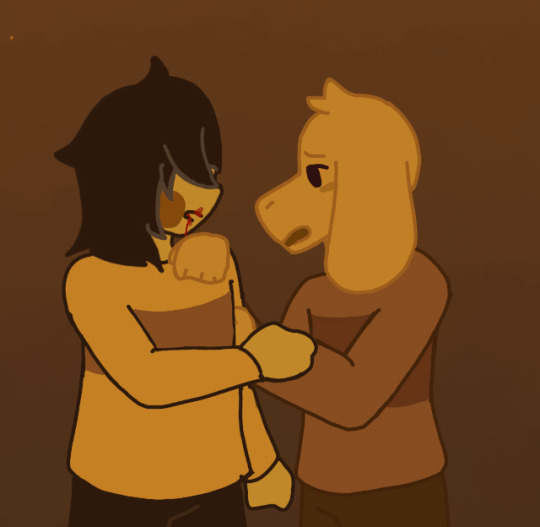
"Chara- oh my... Chara..." "Azzy…"

"Take my soul.. before I die..."
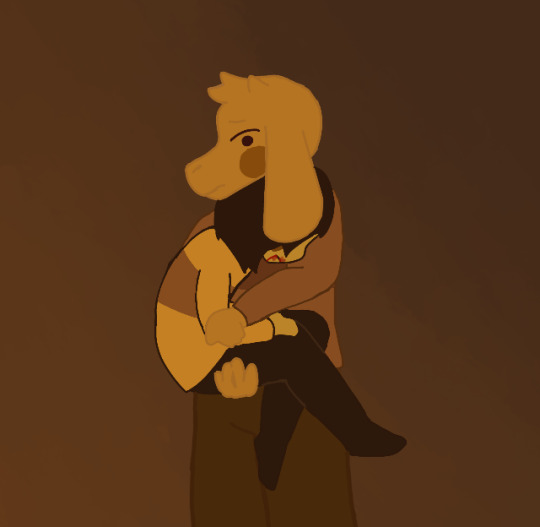
"Let's go, Chara me."
#undertale#art#comic art#undertale comic#chara#asriel#soul#implied death#asriel dreemurr#asriel dreemur undertale#chara undertale#utdr#fallen human#Styled like beginning scenes of undertale
32 notes
·
View notes
Text
This is Jess! He’s the Bravery Fallen human in the AU! I was gonna wait to show him, but I realized I actually haven’t written THAT MUCH lore for him atm? So, You know, why the heck not lol?
-He is pretty much the only Fallen Human who’s a legal adult (19)
-Jess had a Motorcycle when he was on the surface 😎
-Jess’s soul is bravery (duh) but while it is his strength, it’s also his weakness. Jess is… not exactly the nicest person. He can be pretty mean (even cruel sometimes if he’s having a bad day). He’s brash, reckless, angry, mean, has no patience, and almost NEVER listens to any kind of authority figure. Despite that however, there is another side to him. You see, Even though he’s a bully for the most part, he IS actually super nice towards kids and has a soft spot for them! Due to how he was treated growing up he has the urge to protect any kid he sees in hopes of preventing them from turning out as bad as him.
-He is the first to fall after the incident and the first to die to CC. CC by the time Jess fell wasn’t as big as they are when Frisk falls (because they are continuing to corrupt and whatnot). When Jess encountered CC, CC wasn’t actually aggressive and was more curious than anything when he showed up (Considering they’ve been alone for so long and never seen another human in the underground before). However, in a “fight or flight” response, Jess threw rocks and other sharp objects at them; this unfortunately results in CC finally snapping after everything they’ve been through, hearing Crimson’s malevolent voice for the first time… And so CC kills him.
Tbh, I don’t think he looks the best??? But I’m still pretty mid when it comes to drawing humans and humanoids imo so he could look a lot worse in all honesty lol.
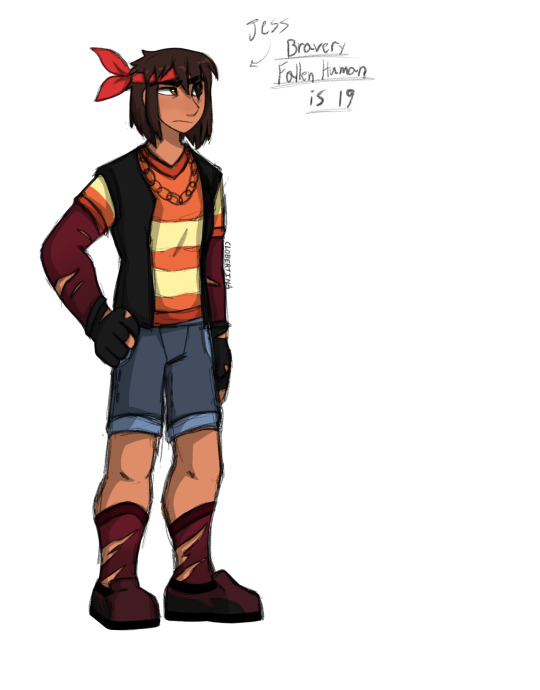
#undertale#undertale aus#talltale#undertale au#Jess#fallen human#undertale fallen humans#Talltale fallen humans#Talltale jess#bravery#bravery soul#Talltale lore
11 notes
·
View notes
Text
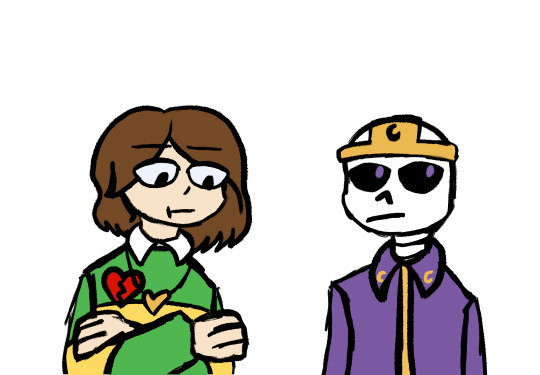
ate things they shouldn’t’ve and fucking died duo
#chara dreemurr#chara undertale#chara#fallen human#undertale#undertale au#passive nightmare#passive nightmare sans#nightmare sans#nightmare#ate things they shouldntve and fucking died duo#doodle#my art!
81 notes
·
View notes
Text

Chara - Just a kid.
#chara#character art#fanart#undertale#fallen human#undertale fanart#fanon chara#undertale genocide#undertale true pacifism#undertale spoilers#undertale pacifist#heart locket#gardening#gardening knife#true knife#the true knife#real knife#the first human#the first fallen human#chara dreemurr#indie#indie games#ibispaint art#ibispaintx#ibispaintdrawing#made in ibis paint#ibispaintapp#amatuer art
8 notes
·
View notes
Text
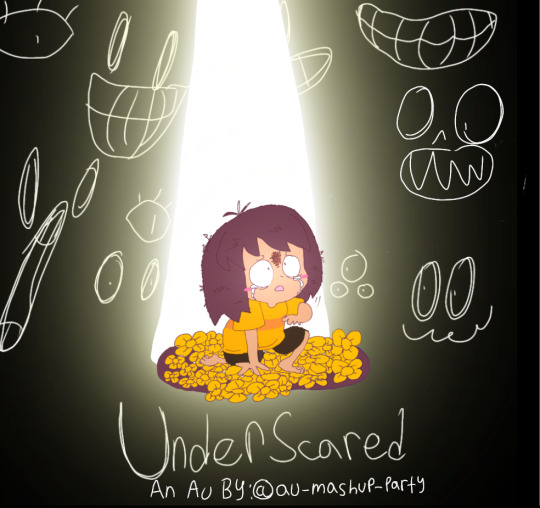




Underscared Part 1-4
#underscared comic#pumpkin#underscared pumpkin#underscared flowey#undertale community#undertale mutiverse#underscared#undertale au#underscared blog#utmv comic#utmv au#flowey au#fallen human#this took a good 3 hours#but i'm proud of it#human au#woo hoo#yippee 🎉🎉🎉#au comic#au mashup party#undertale comic#undertale alternate universe
25 notes
·
View notes
Text
uh oh
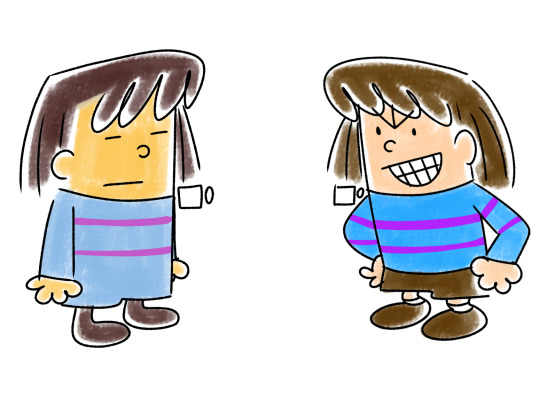
58 notes
·
View notes
Text
It is my chance to re draw my fallen humans from my AUs !!! :0

Well you will see back my AUs SweetTale/Rottentale/MondlichtTale and MusicTale :D
#the creator#undertale au#my au#sweettale is my au#musictale is my au#rottentale is my au#mondlichttale is my au#fallen humans#fallen human#undertale oc
28 notes
·
View notes
Text

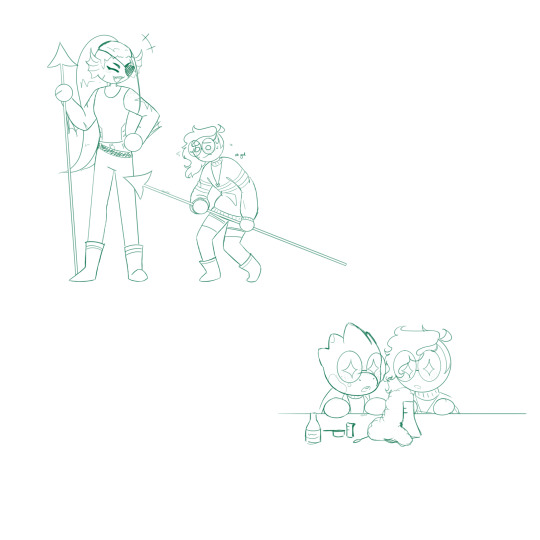
undersona! (soul of empathy)
(+ interacting with the main cast part 1)
i sincerely apologize for the SHIT quality
3 notes
·
View notes
Text

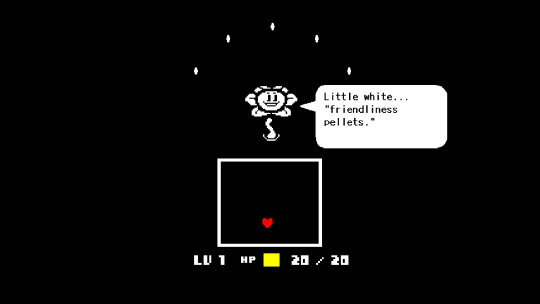

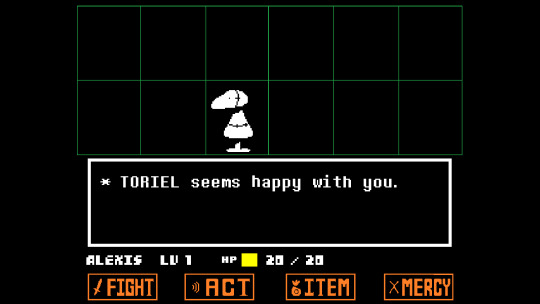
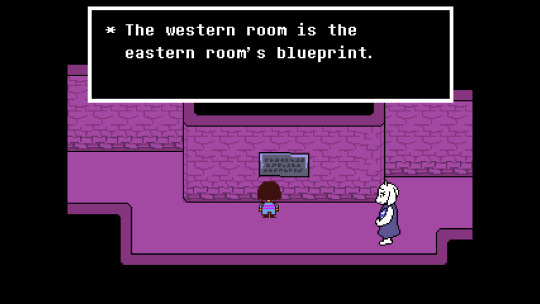
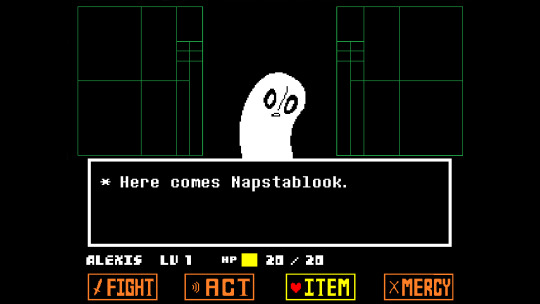
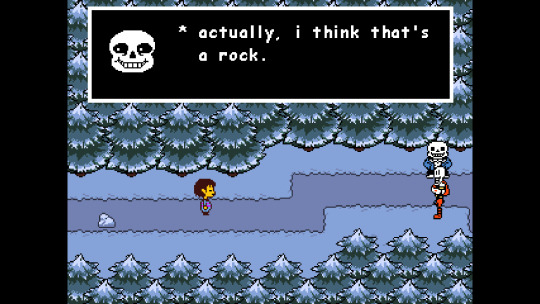
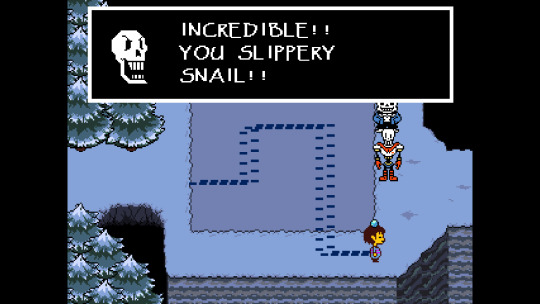
If anyone is going to ask what I've been up to, THIS is my answer.
#undertale#frisk#skelebros#toriel#flowey#napstablook#fallen human#Alexis the Fallen Human#I'm playing Undertale guys#SINCE THE FANDOM IS STILL ALIVE SOMEHOW??#I think it's that 'GlitchTale' series on Youtube#and many ohers#The 'Stronger Than You' trilogy too-
29 notes
·
View notes
Photo
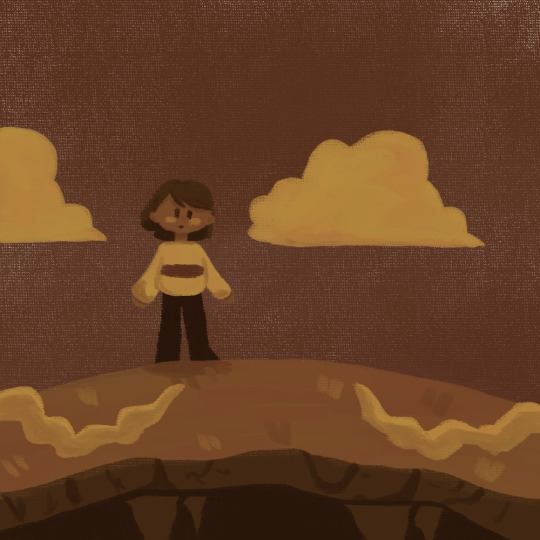
id: a digital painting of the first human from undertale. in the foreground there are two vines and a large hole, which the human is looking into. it’s using the same brown and yellow color palette from undertale’s opening cutscene. /end id
day 3: the fallen human
18 notes
·
View notes
Note
How has Chara been since having her feet swept out from under her halfway up a ladder? :0
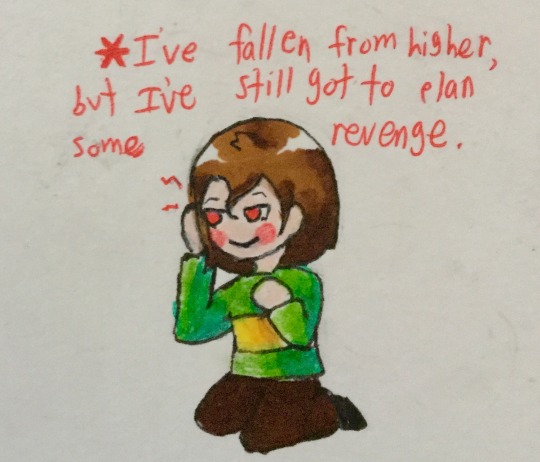
#undertale#art#flowey#small artist#undertale art#paper art#undertale fanart#ask blog#ask undertale#chara#ask chara#fallen human#plotting his demise#anon#bunk beds
6 notes
·
View notes